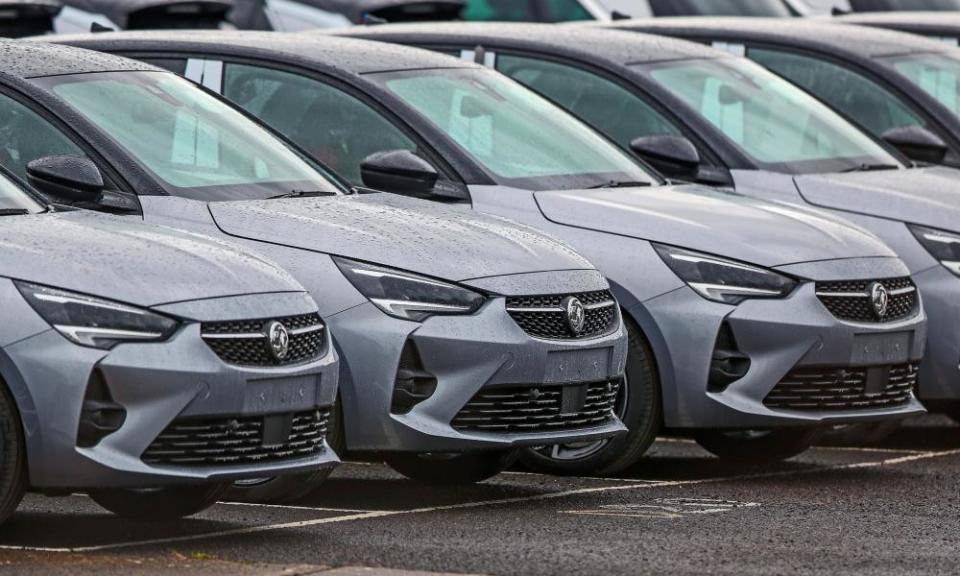UK car industry reports worst February sales since 1959

The car industry has had its worst February for sales since 1959 as dealerships across the UK remained closed through national lockdowns.
British consumers bought only 51,300 cars in the month, a 35.5% year-on-year decline, according to the Society of Motor Manufacturers and Traders (SMMT).
The lobby group also cut its new car sales forecast for 2021 by 60,000 to 1.83m vehicles as prospects for March worsened.
The poor sales added to a frustrating week for the industry. Apart from a continued freeze on fuel duty, the sector was ignored by the chancellor, Rishi Sunak, in Wednesday’s budget while further questions were raised about the future of Vauxhall’s Ellesmere Port factory by the chief executive of the parent company, Stellantis.
The only bright spot amid the winter gloom was the increasing proportion of electrified vehicles bought in February, with battery electric and plug-in hybrids accounting for 13% of total new car sales.
The short-term prospects for the UK car industry remain gloomy, with dealerships likely to be closed throughout March. Normally the sector’s most important month, March accounts for a fifth of annual sales when number plates are updated.
Mike Hawes, the SMMT’s chief executive, said the February figures were deeply disappointing but expected, given dealerships were closed throughout the month.
However, he was also concerned about the prospect of a “third successive dismal ‘new plate month’” after lockdowns and restrictions in March and September 2020.
“Although we have a pathway out of restrictions with rapid vaccine rollout, and proven experience in operating click and collect, it is essential that showrooms reopen as soon as possible so the industry can start to build back better, and recover the £23bn loss from the past year,” Hawes said.
A sales recovery may come too late for workers at Ellesmere Port in Cheshire. On Wednesday, Carlos Tavares, who took over Stellantis after it was created from the merger between Peugeot and Fiat Chrysler, repeated warnings that the plant would close without a financial commitment from the UK government.
Tavares said the company had already completed plans for new models to replace the Vauxhall Astra at the plant in a “multi-energy project”, which is very likely to be a reference to the production of both hybrid and electric cars. However, the government’s 2030 ban on the sale of new petrol and diesel only cars had forced a rapidly rethink, he said.
Stellantis has already invested in electric vehicle production elsewhere, so it did not make sense to spend on “double sourcing” unless it was “supported in the investment by the UK government”, Tavares added.
Discussions with the government over what aid it is willing to give have dragged on. Insiders initially said a decision was due to be made last week.
Tavares said the Brexit trade deal, which was only confirmed on Christmas Eve, had counted against the survival prospects of the Vauxhall plant.
Industry insiders were almost unanimous in their belief that multiple UK car factories would have been forced to close if no deal had been agreed with the EU and tariffs had been imposed. However, with tariff-free trade Stellantis can easily continue to serve the UK market from factories in the EU, Tavares said.

 Yahoo Finance
Yahoo Finance 